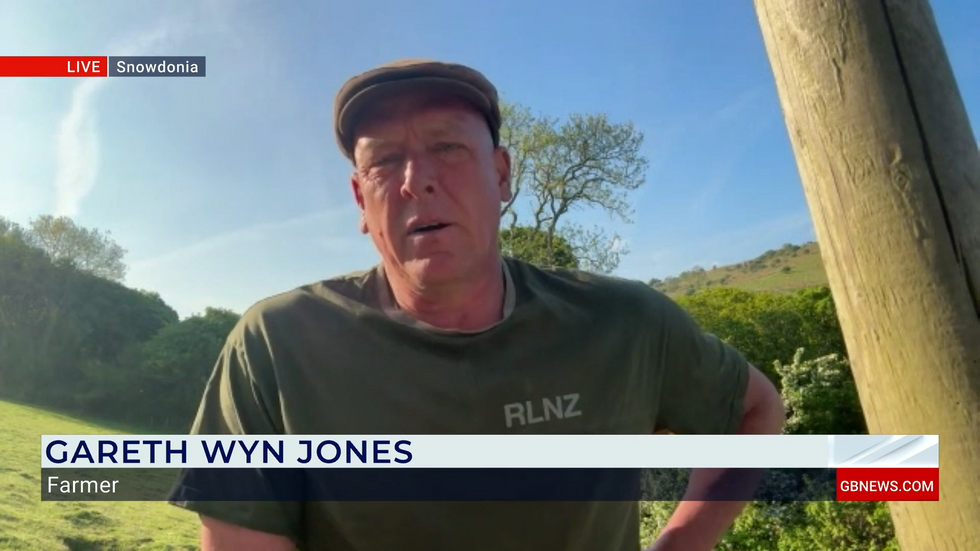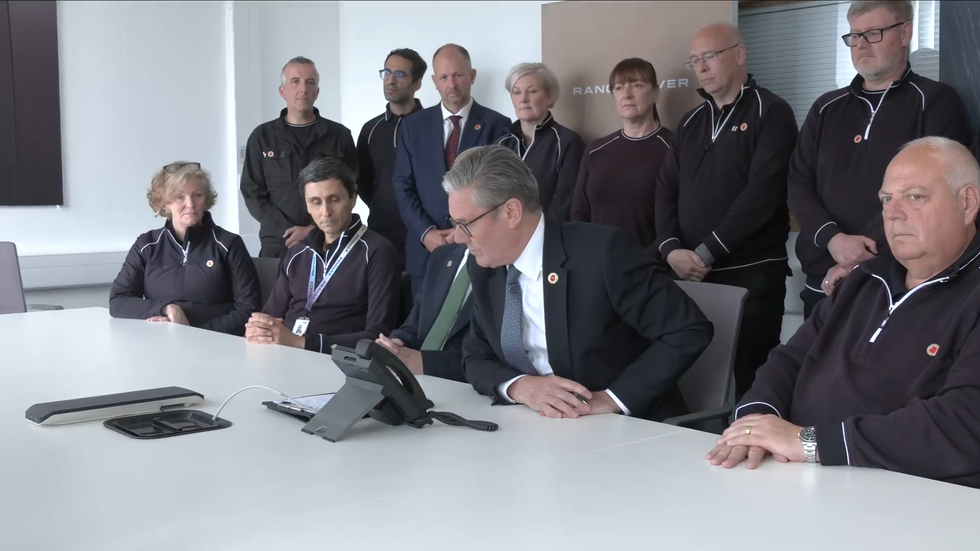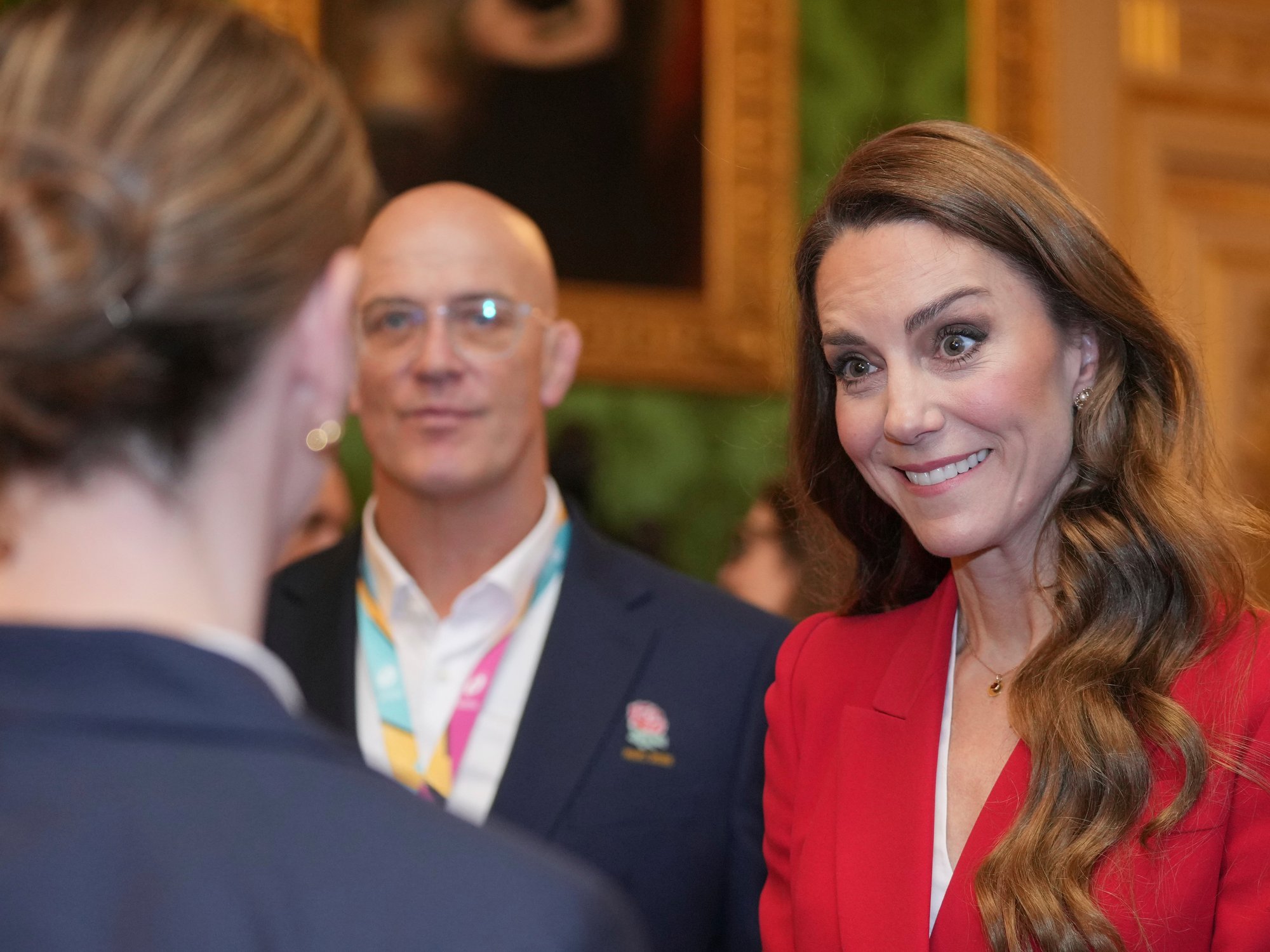'Sold down the river again!' Farmer blasts Keir Starmer for 'opening the floodgates' with US-UK deal

The deal has received mixed reactions from the farming community - with some seeing opportunities while others express serious concerns
Don't Miss
Most Read
A UK farmer has criticised Prime Minister Sir Keir Starmer for "opening the floodgates" with the newly announced UK-US trade deal, despite government assurances that British food standards will be maintained.
The deal, announced yesterday afternoon, has received mixed reactions from the farming community, with some seeing opportunities while others express serious concerns.
US President Donald Trump described the agreement as "very conclusive" while Starmer called it "fantastic" and "historic".
The agreement includes reciprocal market access for beef, with UK farmers given a tariff-free quota for 13,000 tonnes of exports to the US.

Farmer Gareth Wyn Jones said the deal "is dissapointing"
|GB NEWS
Speaking to GB News, farmer Gareth Wyn Jones said: "We haven’t seen the devil in the detail yet, but it looks like they’ve sold out the industry down the river again.
"It’s disappointing. We need to protect our motor industry, but we also need to protect our farming industry.
LATEST DEVELOPMENTS
- 'It's crackers!' US-UK trade deal torn apart as guest predicts 'funeral' for British car manufacturing industry
- 'Worse off than when this started!' Andrew Griffiths blasts US-UK trade deal and demands 'free-trade agreement'
- US trade deal confirmed in chaotic phone call between Donald Trump and Keir Starmer
"I’ve got a lot of friends in the States, things are on a massive scale over there. They can produce hundreds of thousands of tons of beef.
"Right now, our beef sales are up, but this could be another nail in the agricultural coffin.
"I don’t think the Labour government or Keir Starmer, Rachel Reeves really understand what they’re doing.
"I read a small article this morning saying we export about 101,000 cars to the US, which sounds good.
"But anything over 100,000 units will be hit with a steep tariff something like 25%. So, we’re really no better off with the deal they’ve done.
"The only real result is that they’ve opened the floodgates for beef imports into this country. The only positive I can see is the hope that we might be able to sell some British lamb and beef into the US.
"Let’s hope we can strike a proper deal, because I don’t think the people running the country at the moment are doing the agricultural sector any favours."
Currently, Britain's two largest supermarket chains stock only British and Irish fresh beef. A key concern for British farmers is the inclusion of zero-tariff bioethanol in the deal, which has raised alarms for the arable sector.
 Keir Starmer listened to Donald Trump's trade announcement via phone call in the West Midlands | Reuters
Keir Starmer listened to Donald Trump's trade announcement via phone call in the West Midlands | ReutersThe NFU highlighted that the removal of tariffs on bioethanol could threaten the viability of domestic production.
"We are working through what this means for the viability of domestic bioethanol production and therefore the potential impact on our members," said NFU President Tom Bradshaw.
The farmers' union pointed out that specific agricultural sectors would "shoulder the heavy burden of the removal of tariffs for other industries in the economy."
The Association of Independent Meat Suppliers took a more optimistic view, describing the deal as providing "unprecedented market access for British farmers."
The organisation urged its exporting members to explore opportunities for fresh, frozen and processed meat products.











